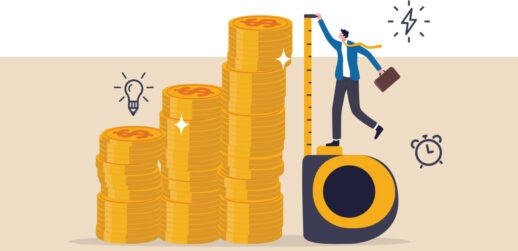The event planning industry has been grappling with how best to reduce its carbon footprint for some time. A PricewaterhouseCoopers study titled The Economic Significance of Meetings to the U.S. Economy estimated that there are 1.8 million meetings, trade shows and conventions held annually in the United States. Repurpose America compiled data on how much trash these events generate, and determined it to be approximately 600,000 tons annually.
When you add this figure to the 20 pounds of waste generated by each of the 60 million attendees of trade show events annually, it is clear that the need for more and better sustainable measures is urgent. Data from MeetGreen, an event company that works with organizations to integrate sustainability practices, suggests that the average three-day, 1,000-person national conference generates approximately 584 tons of global-warming CO2 emissions.
Offering greener transportation options—such as carpools for attendees from airports and hotels, and food and beverage measures including food digesters to break down waste into liquid before it passes through sewage systems—are steps in the right direction. However, event technology can be even more practical, easily implemented and beneficial to our planet, planners, exhibitors and attendees.
Best Sustainability Practices
The plight of events in tackling their waste problems has not been lost on organizations with green missions. They have been diligent in setting standards to promote green meetings. Green Meeting Industry Council, for example, has developed best practices designed to balance environmental, economic and social impacts via a multiphase approach to planning and implementing sustainable events. These include:
–Creating a plan for identifying an event’s sustainability objectives
–Establishing a sustainable meeting policy that incorporates the organization’s internal values
–Engaging and gaining the support of vendors in the plan
–Tracking performance against sustainability action plans
–Communicating results and successes
–Being innovative in the environmental management action plan
Organizations such as the Global Reporting Initiative (GRI) and International Standards Organization (ISO) also offer guidelines for achieving sustainable meetings. And, significantly, the American Society for Testing and Materials and Accepted Practice Exchange (ASTM/APEX) developed a set of nine formal, voluntary standards developed specifically by the meetings, conventions, exhibitions and events industry. The audiovisual as well as communications and marketing material standards speak directly to the use of technology.
7 Ways Tech Moves the Green Dial
Going paperless has been a mantra of organizations for decades. It can, however, be embraced on a much larger scale by leveraging event technology. Here are some examples of technologies that reduce paper and waste, while delivering other powerful benefits.
Web-based event registration software eliminates complex paper-based, labor-intensive processes by enabling online registration and email confirmation 24/7, as well as onsite self-registration using event-branded kiosks for added marketing value. These solutions also provide robust reporting tools and real-time reports to keep event planners informed regarding such metrics as attendee counts by badge types and geographic location, and onsite versus preregistration—data that can be used for future event planning.
Event beacon technology provides seamless check-in and registration, attendee engagement, enhanced sponsorships and marketing opportunities, facilitated by its intuitive, web-based dashboard, real-time alerts, and aisle and booth traffic-data feeds. It is an advanced technology that supports sustainability goals and serves as an effective logistical support and marketing tool.
Digital document libraries offer a paperless depository for organizations to place relevant information where it can be easily accessed by key constituents, meeting attendees and customers. The libraries enable organizations to generate leads and capture data relating to what information is being accessed, by whom and when. Data then can be exported, analyzed and provided to the sales team for effective new business development.
Mobile apps can be used to eliminate paper documents and provide a convenient way for event attendees to access program agendas, speaker bios, videos, news information, etc., as well as to communicate with other event participants and engage them through social media integration.
Also, e-Literature libraries can be leveraged by associations and other meeting planners, sponsors and exhibitors for delivering event information, product information and core brand messages. Further, they enable the distribution of on-demand content to attendees, who can then download it onto a USB drive for future viewing and/or sharing with others.
Interactive kiosks are another environmentally friendly technology that can be used by meeting planners to keep attendees informed regarding the various aspects of an event, venue, location city and its cultural offerings, restaurants, travel and transportation news, weather, etc. Additionally, they give sponsors and exhibitors a high-visibility, high-traffic billboard for communicating their company news and marketing messages. Charging station kiosks perform double duty by giving event participants a convenient, onsite way to charge their mobile devices and stay connected.
Digital signage delivers paperless messaging with a built-in wow factor. Digital signage enables event planners, sponsors and exhibitors to display branded content in various formats, from video and text to images, banners, news and social media feeds, for maximum engagement and impact.
By applying these technologies in conjunction with other sound sustainable practices, including the use of recycled materials in exhibits and promotional materials, energy-efficient lighting and appliances, and recycling receptacles, events can minimize their waste and negative impact on our environment.
Brian D. Schiels is the senior director of sales and event solutions for SmartSource Computer & Audio Visual Rentals. SmartSource provides short-term computer and audiovisual rentals for corporate events, trade shows and businesses. smartsourcerentals.com




